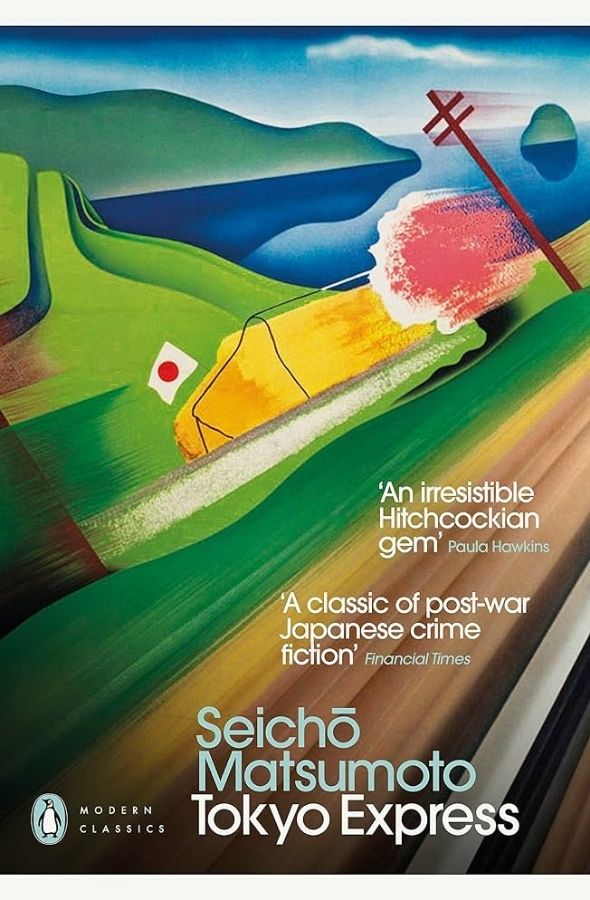A short, riveting tale of a mystery that involves what seems to be nothing more than a tragic lover’s suicide quickly becomes quite an entrancing step-by-step deduction to the true motive behind two cyanide-filled corpses—a government worker and a waitress—turning up on a secluded beach in Hakata, Japan.
Despite not expecting much, I thoroughly enjoyed Matsumoto’s detective novella, alongside the setting of late 1950s Japan. Its two core protagonists—the seasoned and peculiar Inspector Torigai from the area, and the much younger and persistent Inspector Mihara from Tokyo—compliment and assist each other in a not-too-involved, but chummy manner. A believably professional friendship.
Torigai amuses by being the cliché seasoned detective, and is the one who initially pries into the mystery and disagrees with the notion that the bodies were a result of a shared suicide. Matsumoto could have run with this, writing a whole story about an old detective proving he’s still got it. Instead, the author spices it up by placing the old man in the background and allowing the much less experienced Mihara to prove himself in a mostly independent fashion. Torigai does still have it, but he lacks the power, tenacity, and sharpness to put it all into place like Mihara.
Personally, I avoid these sorts of crime and mystery novels on the basis that most are similar to one another, but Tokyo Express was much more gripping than any other I have read thus far. Its characters possessed enough personality without needing any tragic backstory or absurd motive. The third-person narration, as well as the entire opening chapter of the novel that depicts the events prior to the death of the supposed couple, help to create breathing room before we begin following the two detective’s perspectives (intentional rhyme).
Without spoiling much, I found it pleasant that it is a story devoid of nonsense, with much of the mystery being rooted in transport timetables and the underhand dealings of government figures and businessmen. The case always remains at the forefront of the story. We readers witness the exact ways in which Mihara thinks and trials his theories, whilst also glimpsing how the seasoned mind of Torigai can deduce suspicious details from seemingly unremarkable objects, like a dining receipt. These shared ideas prompt Mihara to push further into every loose end or spontaneous idea that crosses his mind.
Neither character lets go of it, which fuels the story with a sense of passion and energy. We begin to share their eagerness, wanting to figure out how each coincidence is actually anything but coincidental, and just who was at the heart of it and what their motive was.
Ultimately, we are treated to a conclusion, and there is no fluff that attempts to make the story deeper than it is. We witness the origin of the mystery, the investigation and logic behind each step of it, and then the conclusion of the case… all nicely wrapped up in 160 pages, and without attempting to make any of it overly melodramatic, sappy, or outright obnoxious. It is a contrast to shabby, elongated detective novels like I’m Travelling Alone, which I reserve frustrated emotions for.
Lastly, I should note that Tokyo Express, despite being over seventy years old, feels incredibly modern. It is devoid of fluff, and contains a solid balance of the glumness and slightly absurdist humour that I often find endearing of Japanese authors. Therefore, its age should not put you off it, and I sincerely recommend it to anyone who wants a story where the clues to unravelling the mystery are simultaneously obvious and subtle from beginning to end.

Leave a Reply